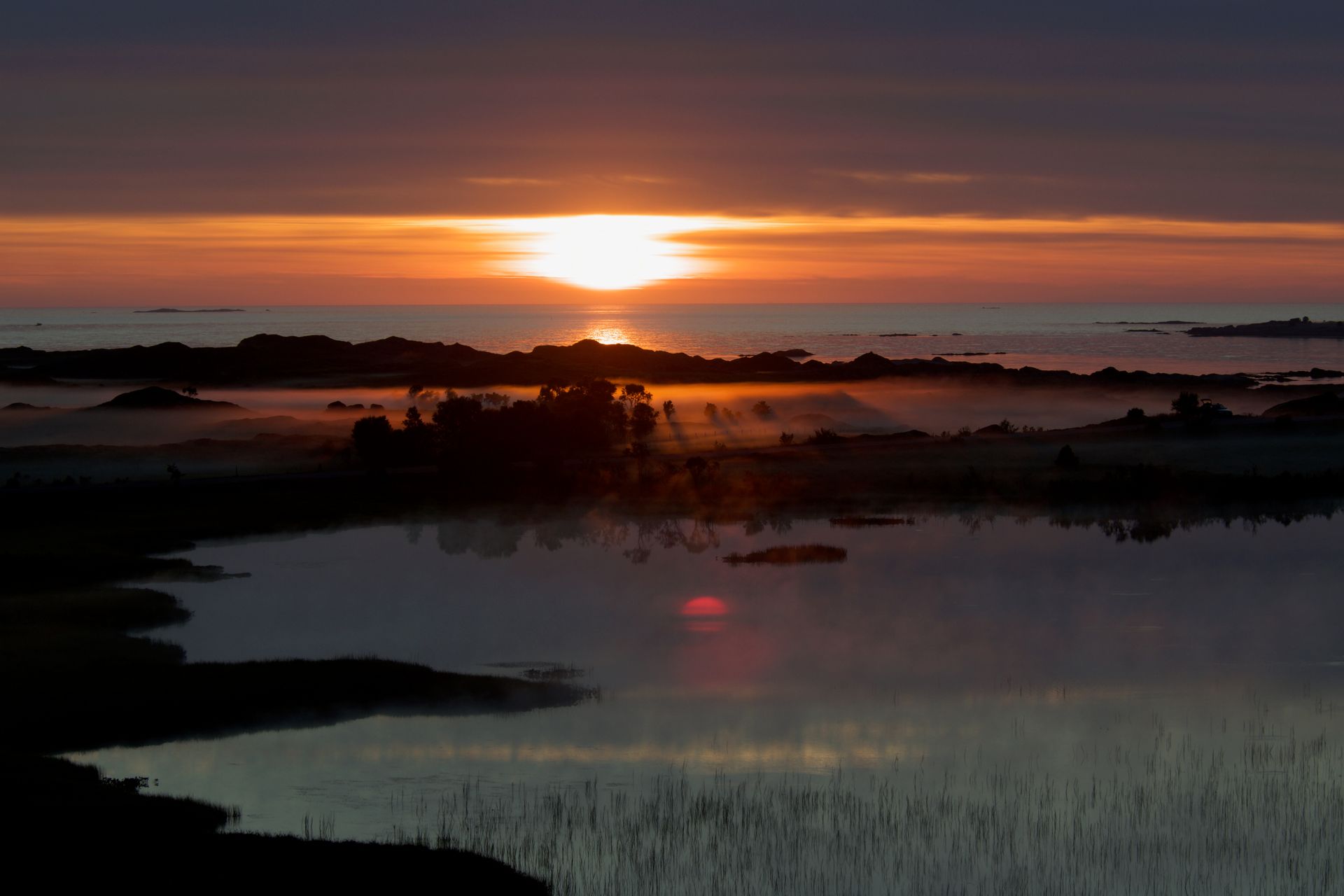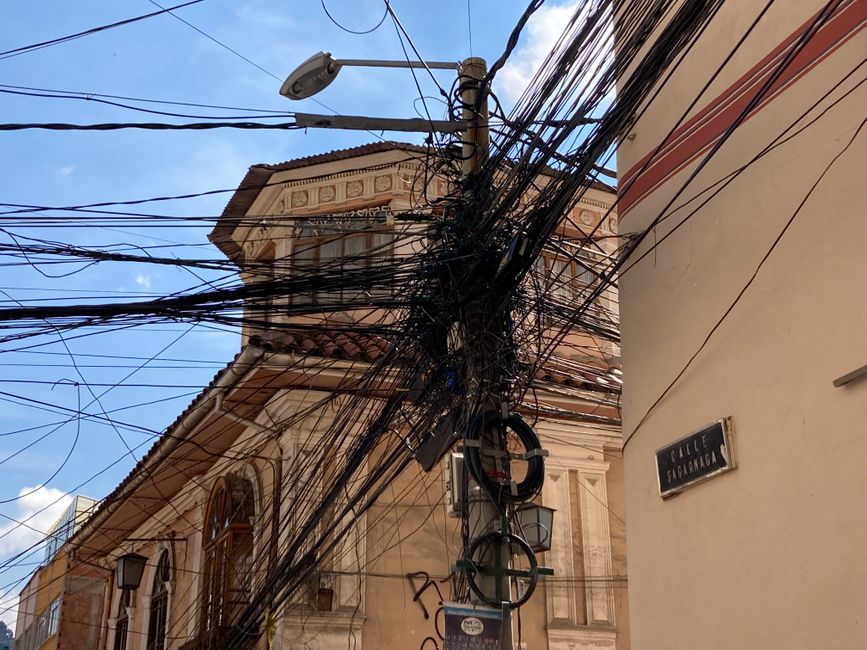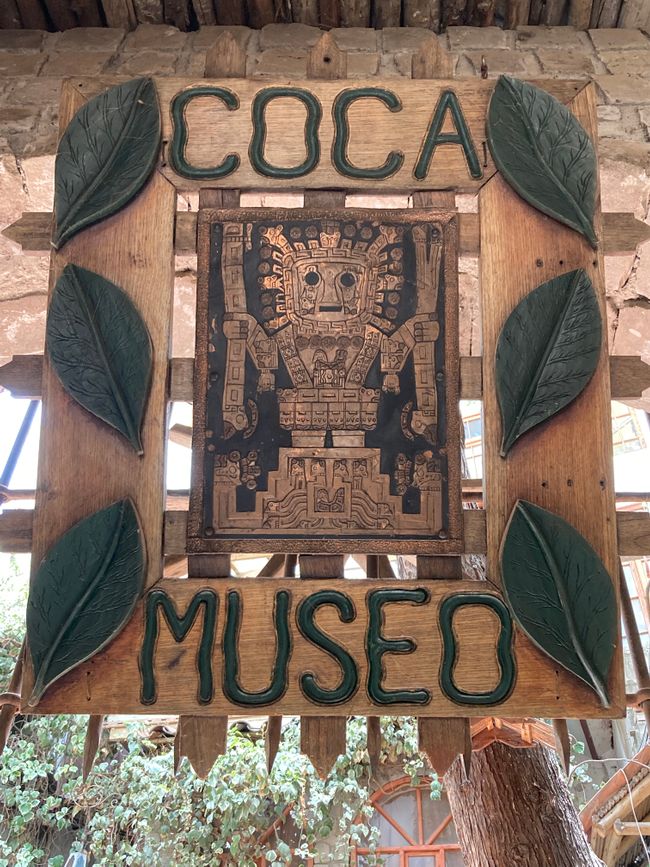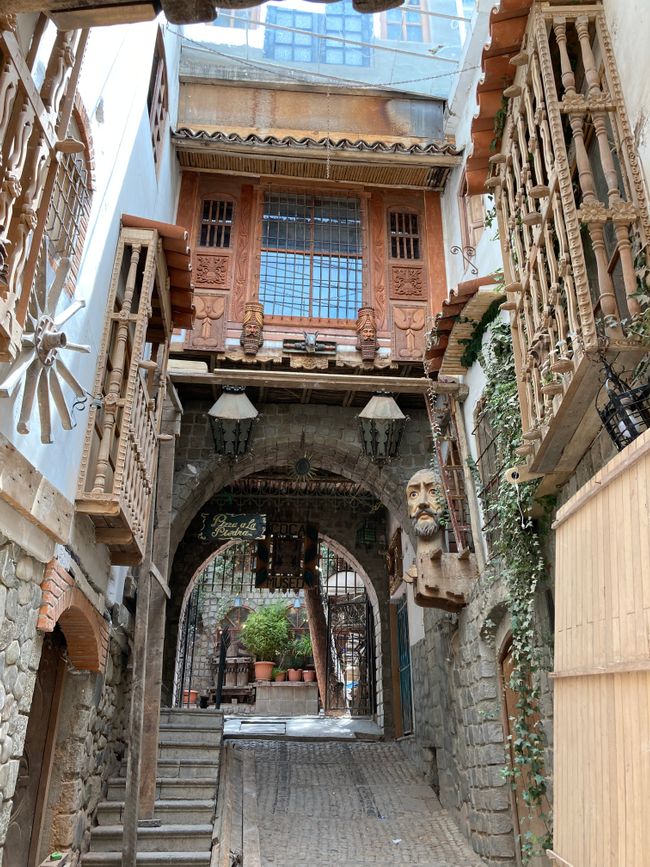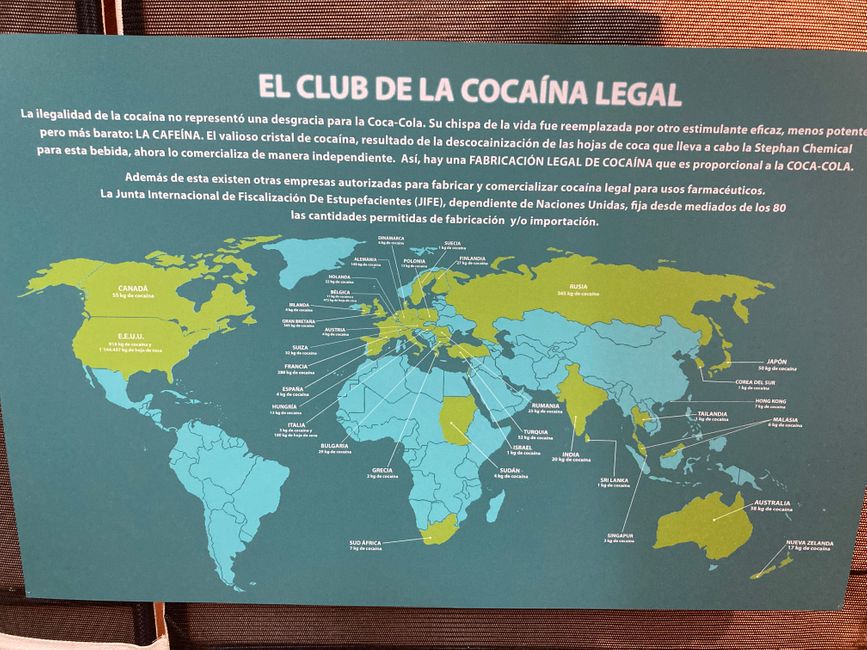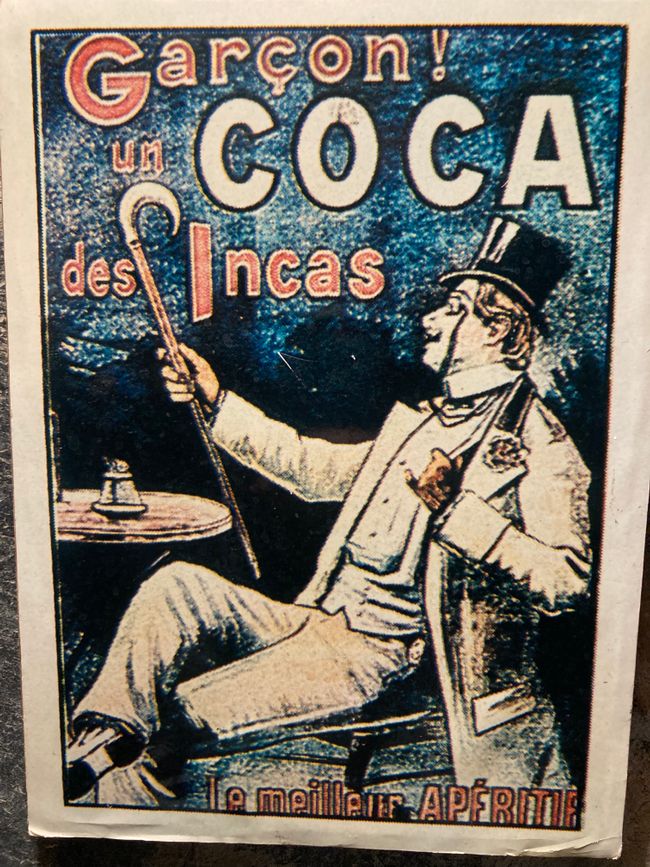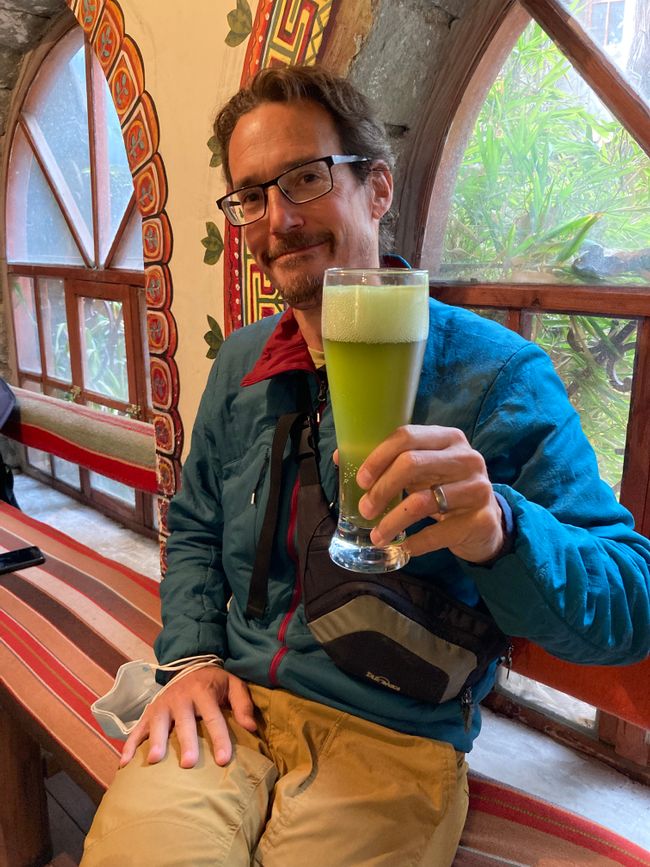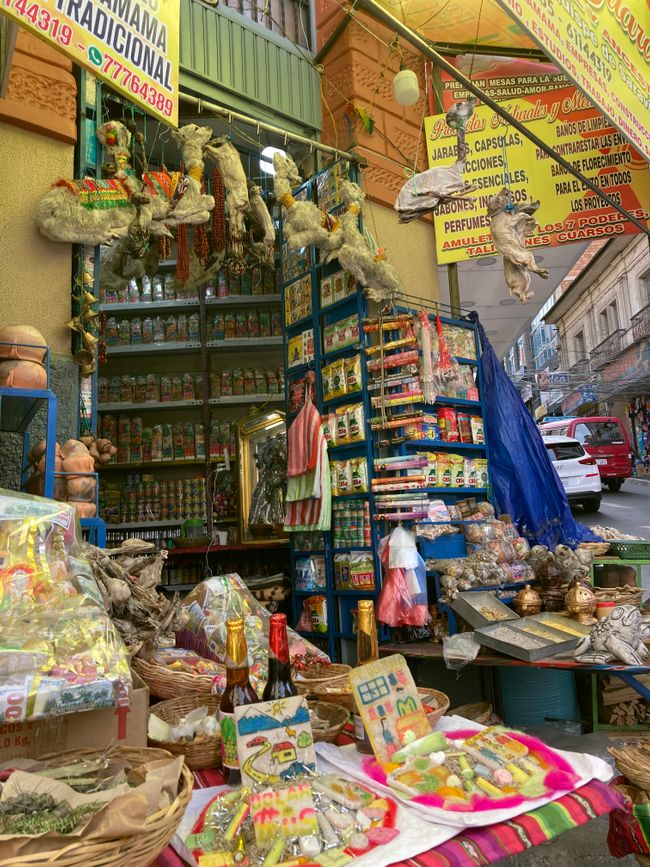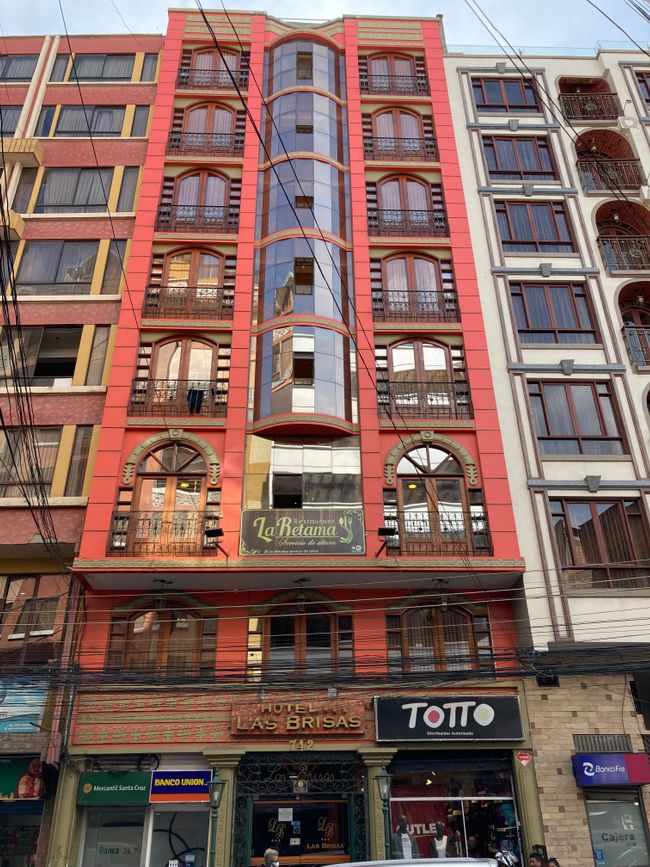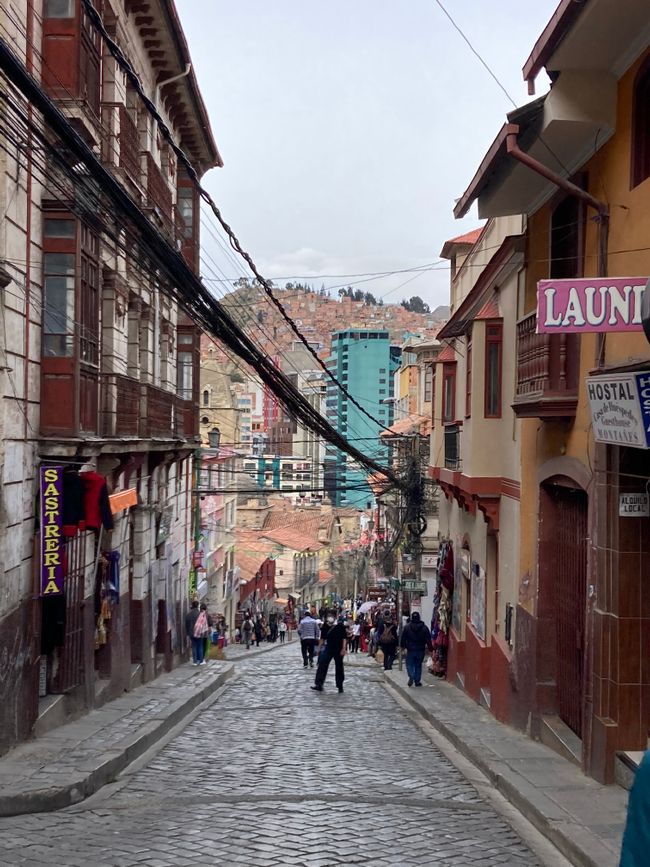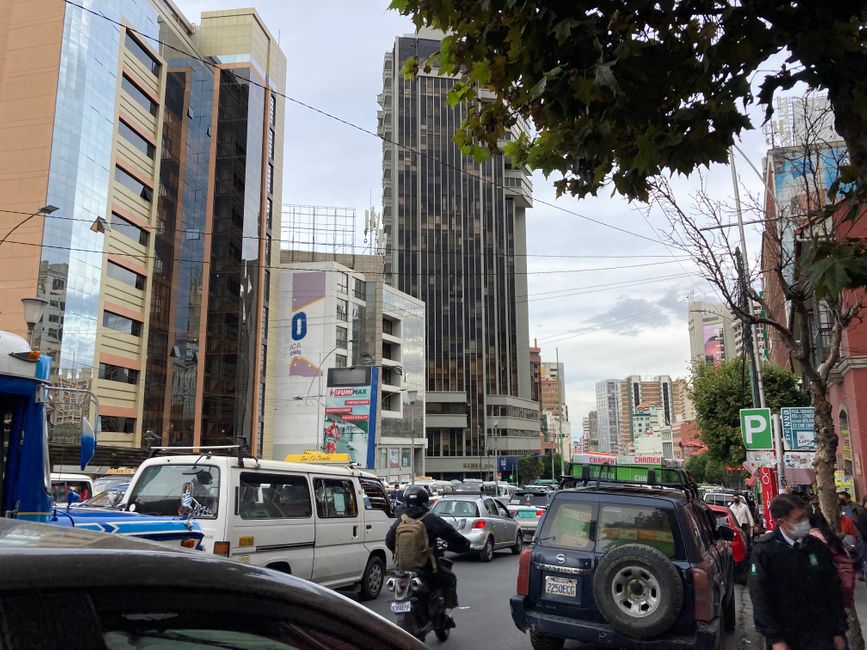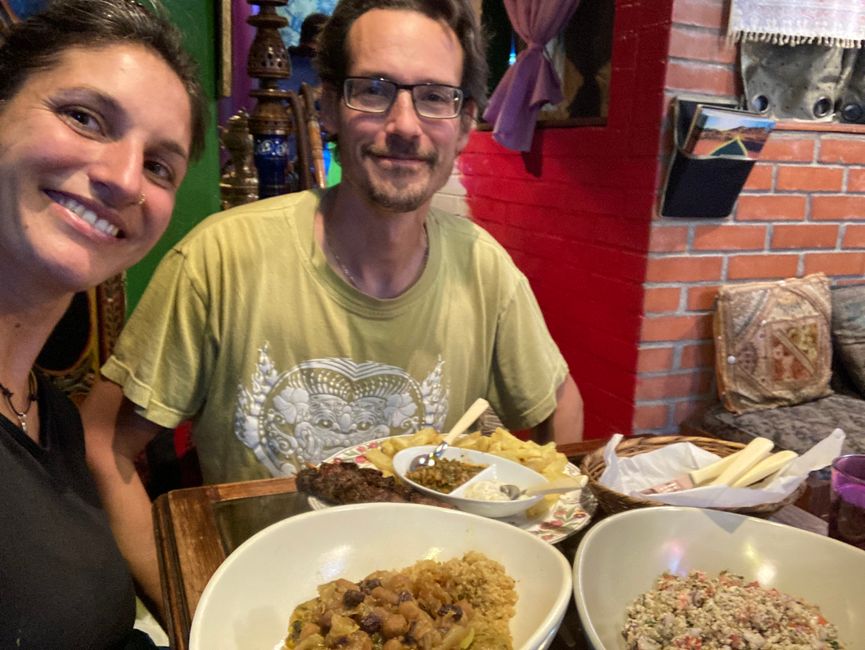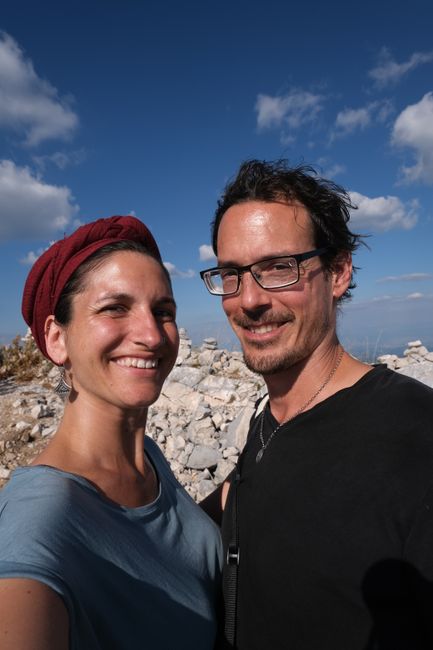
52 weeks
vakantio.de/einisch-randam
La Paz
Uñt’ayata: 05.12.2021
Yatiyäw qillqatar qillqt’asipxam
24.11.
At 4:00 am in the morning we arrive in La Paz. The airport is located in El Alto, our hotel is in the city center, so our taxi takes us about 250m down first. We check into our room and go to sleep.
A few hours later, we take a look at where we have landed and stroll through the streets. Just a stone's throw away from our hotel is the Mercado de las brujas - the Witch Market. Here, every aspiring wizard can get everything they need for rituals: incense salts, firewood, herbs of all kinds, and the occasional dried baby llama, birds, stones, and more. This may sound a bit disrespectful, but rituals and coca leaf reading are still living traditions in Bolivia and are practiced especially for important events in life.
We continue through narrow alleyways, full of Bolivian souvenirs. Unlike in Peru, we notice that many more musical instruments are offered, especially guitars, flutes, and drums.
Later we visit the Coca Museum. Hidden in a wildly decorated courtyard, it appears very small and rather chaotic when entering. We receive a dossier in German, there is a lot to read, and the longer we are in the museum, the more we are drawn into the fascinating world of the coca plant and its history! In the end, we are completely thrilled with everything we have learned and also sobered up like almost every time after visiting a museum. Let's just say: the white people don't come off so well.
The museum owner is a very friendly and open-minded man who tells us that they used to have a Coca Café with cakes and all sorts of experimental delicacies with coca. However, due to the lack of visitors during the pandemic, it had to be closed. Now only the coca beer remains for testing. Of course, we don't miss out on that and taste it in the cozy bay window of the small museum. We can also warm up to the self-made coca pastilles against altitude sickness and buy a bag; they could be of great use tomorrow when we climb Huayana Potosi.
For this, we first go to the market to buy water and snacks. At a stand on the street, we stock up on nuts and dried fruits.
In the evening, we have dinner at a small Moroccan restaurant. Aku, the owner and chef, is very happy to see us, his only guests today, and serves us the finest North African food - although, as we later find out, he is actually Iranian. But it is too complicated to get the right ingredients for Iranian cuisine here in Bolivia. Besides, it's mainly tourists who come to eat, Bolivians are not so fond of Moroccan cuisine.
Yatiyäw qillqatar qillqt’asipxam
Jaysawi
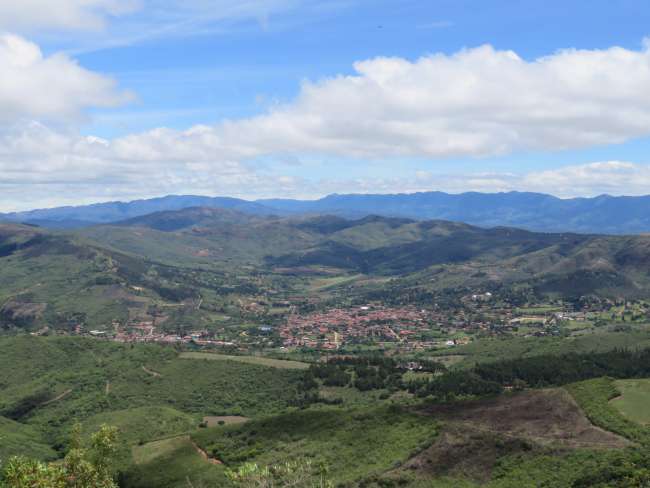
Viajes ukan yatiyawinakapa Bolivia markanxa
